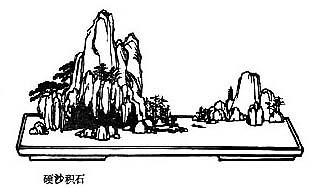孫
子
兵
法
Sun Zi 
 – L'Art de la guerre
– L'Art de la guerre
La stratégie chinoise ou comment s'informer, estimer, diviser, détourner, tromper, et vaincre « sans coup férir ». Tr. Amiot (fr) et Giles (en).
Des neuf changements
Sunzi VIII. 8.
Avant que de finir cet article, je dois vous prévenir contre cinq sortes de dangers, d'autant plus à redouter qu'ils paraissent moins à craindre, écueils funestes contre lesquels la prudence et la bravoure ont échoué plus d'une fois.
I. Le premier est une trop grande ardeur à affronter la mort ; ardeur téméraire qu'on honore souvent des beaux noms de courage, d'intrépidité et de valeur, mais qui, au fond, ne mérite guère que celui de lâcheté. Un général qui s'expose sans nécessité, comme le ferait un simple soldat, qui semble chercher les dangers et la mort, qui combat et qui fait combattre jusqu'à la dernière extrémité, est un homme qui mérite de mourir. C'est un homme sans tête, qui ne saurait trouver aucune ressource pour se tirer d'un mauvais pas ; c'est un lâche qui ne saurait souffrir le moindre échec sans en être consterné, et qui se croit perdu si tout ne lui réussit.
II. Le deuxième est une trop grande attention à conserver ses jours. On se croit nécessaire à l'armée entière ; on n'aurait garde de s'exposer ; on n'oserait pour cette raison se pourvoir de vivres chez l'ennemi ; tout fait ombrage, tout fait peur ; on est toujours en suspens, on ne se détermine à rien, on attend une occasion plus favorable, on perd celle qui se présente, on ne fait aucun mouvement ; mais l'ennemi, qui est toujours attentif, profite de tout, et fait bientôt perdre toute espérance à un général ainsi prudent. Il l'enveloppera, il lui coupera les vivres et le fera périr par le trop grand amour qu'il avait de conserver sa vie.
III. Le troisième est une colère précipitée. Un général qui ne sait pas se modérer, qui n'est pas maître de lui-même, et qui se laisse aller aux premiers mouvements d'indignation ou de colère, ne saurait manquer d'être la dupe des ennemis. Ils le provoqueront, ils lui tendront mille pièges que sa fureur l'empêchera de reconnaître, et dans lesquels il donnera infailliblement.
IV. Le quatrième est un point d'honneur mal entendu. Un général ne doit pas se piquer mal à propos, ni hors de raison ; il doit savoir dissimuler ; il ne doit point se décourager après quelque mauvais succès, ni croire que tout est perdu parce qu'il aura fait quelque faute ou qu'il aura reçu quelque échec. Pour vouloir réparer son honneur légèrement blessé, on le perd quelquefois sans ressources.
V. Le cinquième, enfin, est une trop grande complaisance ou une compassion trop tendre pour le soldat. Un général qui n'ose punir, qui ferme les yeux sur le désordre, qui craint que les siens ne soient toujours accablés sous le poids du travail, et qui n'oserait pour cette raison leur en imposer, est un général propre à tout perdre. Ceux d'un rang inférieur doivent avoir des peines ; il faut toujours avoir quelque occupation à leur donner ; il faut qu'ils aient toujours quelque chose à souffrir. Si vous voulez tirer parti de leur service, faites en sorte qu'ils ne soient jamais oisifs. Punissez avec sévérité, mais sans trop de rigueur. Procurez des peines et du travail, mais jusqu'à un certain point.
Amiot
There are five dangerous faults which may affect a general: 1) Recklessness, which leads to destruction;1 2) cowardice, which leads to capture;2 3) a hasty temper, which can be provoked by insults;3 4) a delicacy of honor which is sensitive to shame;4 5) over-solicitude for his men, which exposes him to worry and trouble.5
Giles VIII.12.

L'Art de la guerre – Sun Zi VIII. 8. – Chinois on/off – Français/English
Alias Sun Tzu, Sun Wu, Sun Tse, Sunzi Bingfa, Souen Tseu, Souen Wou, 孫武.
Le Canon des Poèmes, Les Entretiens, La Grande Étude, Le Juste Milieu, Les Trois Caractères, Le Livre des Mutations, De la Voie et la Vertu, 300 poèmes Tang, L'Art de la guerre, Trente-six stratagèmes
Bienvenue, aide, notes, introduction, table.
Index – Contact – Haut de page
